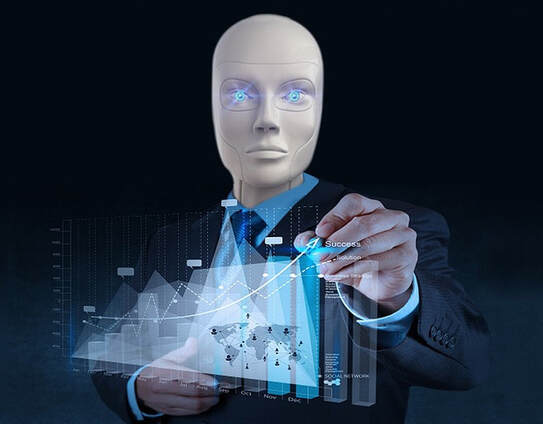|
A data scientist A.I. is an A.I. system that can undertake data science work end-to-end. Systems like AutoML are in this category and it seems that the trend isn’t going to go away any time soon. After all, a data scientist A.I. is better value for money and a solution that can scale very well. Amazon, for example, makes use of such systems to ensure that you view a personalized page based on your shopping and viewing history on the well-known e-commerce website. But how feasible is all this for those not having Amazon’s immense resources? Well, A.I. systems like this are already available to some extent with the only thing missing is data. There are even people in data science who - in lack of another way to describe them - are short-sighted enough to implement them, effectively irreversibly destroying our field. So, once a critical mass of users have enough data to get such a system working well, the question of feasibility would give way to things like "how profitable is it?" or "will it be able to handle the work of other data professionals too?" What about responsibility and liability matters though? Well, A.I. systems may do a great many things but taking responsibility is not one of them. As for when things get awry and there are legal issues, they cannot be held liable. As for the companies that developed them, well, they couldn’t care less. So, if you are using an A.I. system as a data scientist, you are effectively shouldering all the responsibility yourself, all while insulating yourself from any intervention capabilities. In other words, you need to trust the damn thing to do its job right, all while the data you give it may be biased in various ways, something no A.I. system has managed to handle yet. So, what’s the bottom line in all this? Well, A.I. systems may undertake a lot of data science work successfully, but they cannot (at least at this time) be data scientists, no matter what the companies behind these systems promise. There is no doubt that A.I. is a useful tool in data science work, but you still need a human being, particularly one with some understanding of how an organization works, to be held responsible for the data science projects. Even if A.I. is leveraged in these projects at least there is someone to answer for the results, particularly if there are privacy violations or biases involved. If you want to learn more about data science and AI’s role in it, feel free to check out the AI for Data Science book I’ve co-authored a couple of years ago. This book, published by Technics Publications, covers a series of AI-related methodologies related to data science, such as deep learning, as well as others that are more generic, such as optimization. The book is supplemented by Jupyter notebooks in Python and Julia and lots of examples. Check it out when you have a moment!
1 Comment
Interesting and an old argument. Folks have always feared technology stripping away jobs. People once feared the innovation of books. Kurt Vonnegut in Breakfast of Champions envisioned only the job of street sweeper would be left in the modern age. In fact, most street sweepers have been replaced by a machine that can be managed by one driver. Although we have gone to Zoom school, teachers still seem to be necessary. Still, I suspect more jobs are being lost than created by new tech. Imagine if we didn't need to work anymore. What would we do? I meet you in the meet up for writers, enjoyed and basically understood your piece.
Reply
Your comment will be posted after it is approved.
Leave a Reply. |
Zacharias Voulgaris, PhDPassionate data scientist with a foxy approach to technology, particularly related to A.I. Archives
April 2024
Categories
All
|

 RSS Feed
RSS Feed